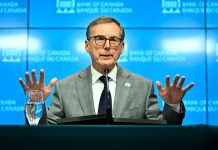
Nairobi, Feb 26 (IANS) Ministers of environment and other leaders from more than 180 nations convened in Nairobi on Monday for the start of the sixth session of the United Nations Environment Assembly (UNEA-6), to be held till March 1.
More than 7,000 delegates from 182 UN member states and more than 170 ministers have registered for UNEA-6, taking place under the theme ‘effective, inclusive and sustainable multilateral actions to tackle climate change, biodiversity loss and pollution’.
With a focus on strengthening environmental multilateralism to address the triple planetary crisis of climate change, nature loss and pollution, this year’s Assembly will be negotiating resolutions on issues ranging from nature-based solutions and highly hazardous pesticides to land degradation and drought, and environmental aspects of minerals and metals.
The UN Environment Assembly is the world’s highest decision-making body on the environment — its membership includes all 193 UN member states.
It meets biennially to set priorities for global environmental policies and develop international environmental law; decisions and resolutions then taken by member states at the Assembly also define the work of the UN Environment Programme (UNEP).
“We are living in a time of turmoil. And I know that in this room, there are people who are, or who know, those deeply affected by this turmoil. Our response must demonstrate that multilateral diplomacy can deliver,” said Leila Benali, President of UNEA-6 and Minister of Energy Transition and Sustainable Development, Morocco.
“As we meet here in 2024, we must be self-critical and work towards inclusive, networked and effective multilateralism that can make a tangible difference to people’s lives.”
As climate change intensifies, a million species head towards extinction, and pollution remains one of the world’s leading causes of premature death, UNEA-6 will see countries consider some 19 resolutions, part of a broader push to spur more ambitious multilateral environmental action.
The resolutions cover, among other issues, circular economy; solar radiation modification; effective, inclusive, and sustainable multilateral actions towards climate justice; sound management of chemicals and waste, and sand and dust storms.
Delegates this week will include heads of state, representatives from government, civil society, and the private sector.
A series of leadership and multi-stakeholder dialogues and more than 30 official side events and associated events are expected to lay the grounds for strengthened future global and regional coordinated efforts by the United Nations, member states and partners to deliver high-impact planetary action.




